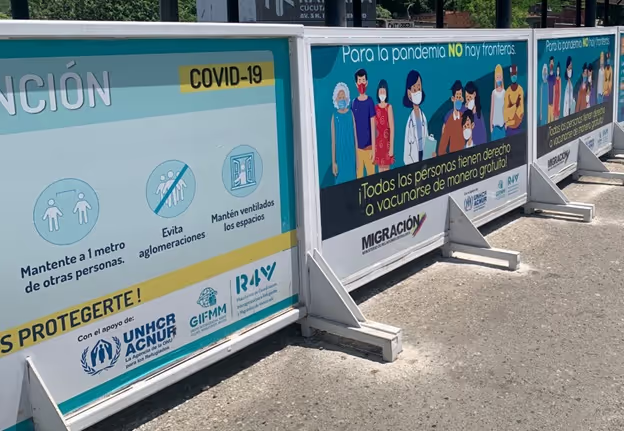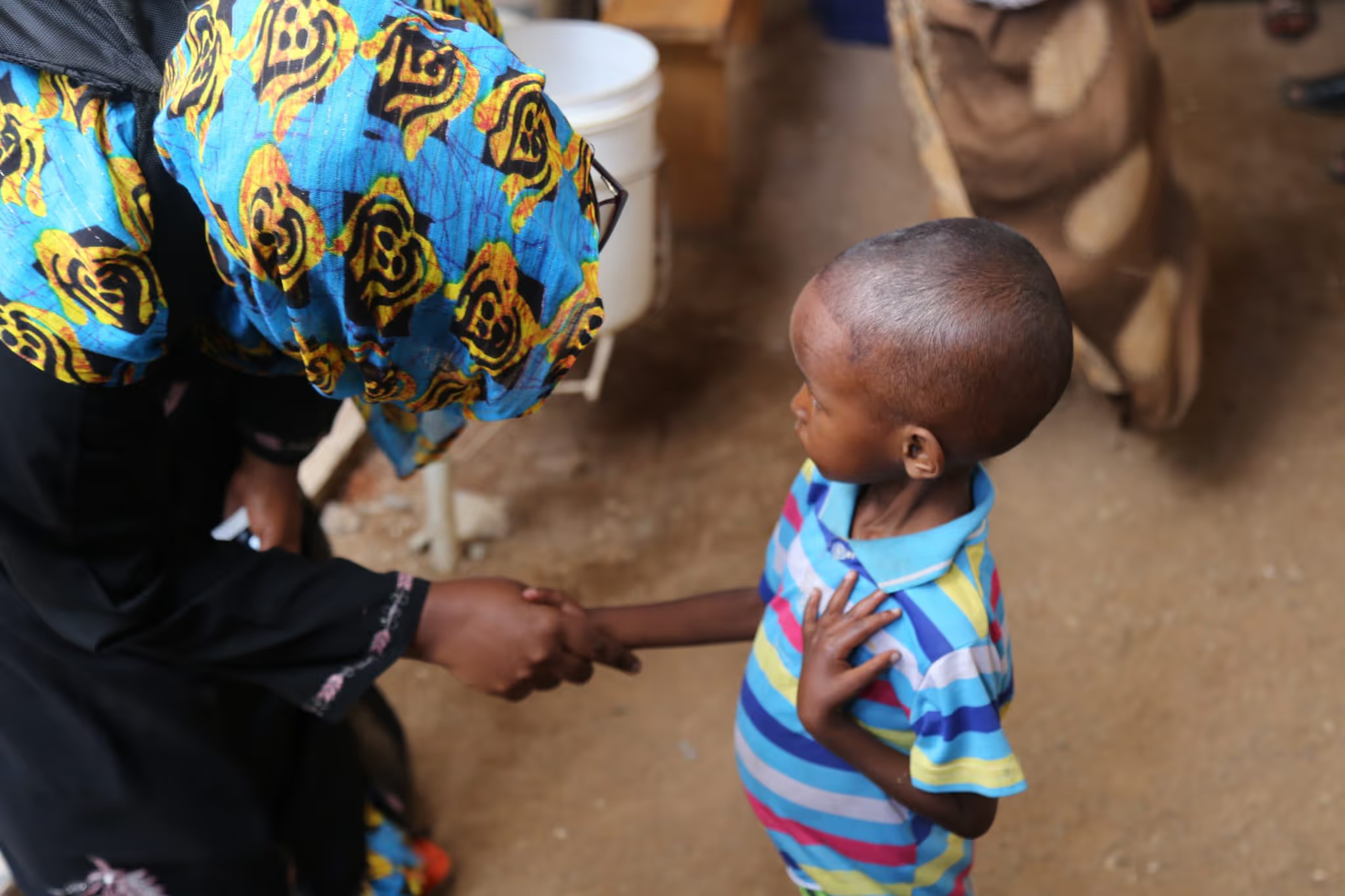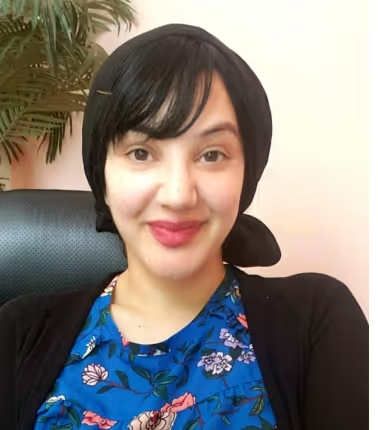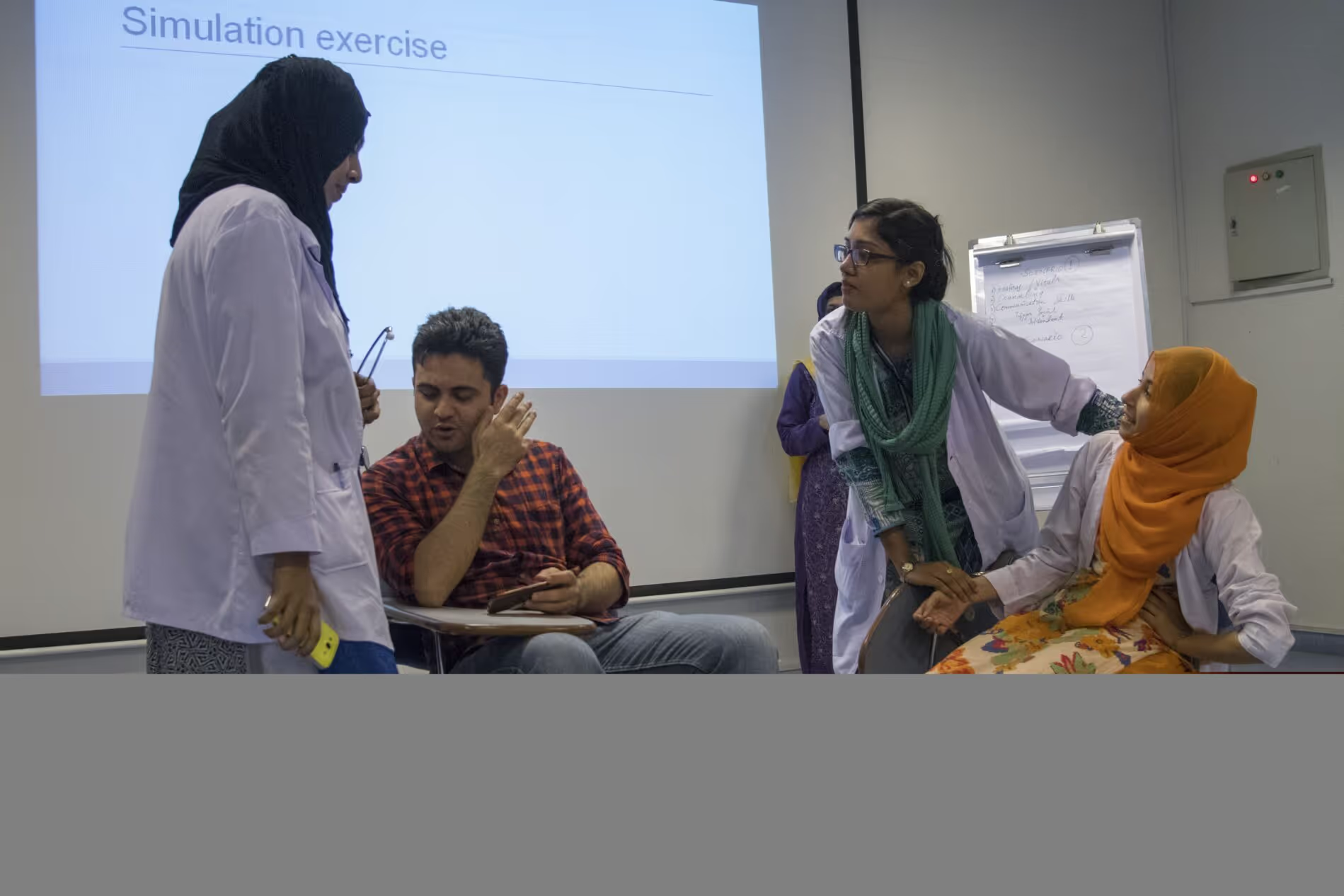Strengthening the humanitarian response to COVID-19 in Colombia

Project overview
This study sought to understand the adherence to public health and social distancing policies across 60 Colombian municipalities as well as measure health care utilisation and costs among Venezuelan migrant refugees and Colombian citizens in the same municipalities throughout the COVID crisis.
Countries
Colombia
Organisations
Brandeis University
Partners
Los Andes University, IQuartil
Area of funding
Humanitarian Research
Grant amount
£289,613.00
Start date
01
June
2020
End date
01
February
2021
Project length (in months)
8
Funding calls
Focus areas
No items found.
Topics
COVID-19
Status
Closed
Project solution
This project offers [specific solution or intervention] to tackle [challenge]. By implementing [strategies, tools, or innovations], the project aims to achieve [desired outcomes]. The approach is designed to [specific actions or methods] to bring about meaningful change in [community, region, or issue area].
Expected outcomes
This project aims to achieve [specific outcomes], such as [measurable results, improvements, or changes]. The expected impact includes [benefits to the target community, advancements in research or innovation, or long-term effects]. By the end of the project, we anticipate [specific changes or milestones] that will contribute to [broader goals or objectives].
Principal Investigators: Diana Bowser and Donald Shepard (Brandeis University, Heller School for Social Policy and Management)
Research Snapshot: COVID-19 and Venezuelan migrants in Colombia
How can local health services overcome disparities between Venezuelan migrants and Colombian nationals in access to essential healthcare services?
[.cta_link]View Research Snapshot[.cta_link]
What did the study set out to achieve?
The research aimed to:
- Determine the variation in implementation, and adherence to public health and social distancing policies during the COVID-19 outbreak among Venezuelan migrant refugees and Colombian citizens across 60 Colombian municipalities.
- Determine health care utilisation and costs among Venezuelan migrant refugees and Colombian citizens, by municipality.
- Assess the impact of implementation and adherence to public health policies on the rate of COVID-19 cases, health care utilisation, and mortality, by municipality.
- Use results to inform global policy and decision-making related to the process of re-opening, especially for countries with refugee and humanitarian populations.
Using administrative data from 60 municipalities across Colombia for 2019 and 2020, the study compared the rates of COVID-19 cases, deaths and health service use (hospitalisations and consultations) of Colombian nationals and Venezuelan migrants, before and after implementation of the COVID-19 public health policies. Telephone surveys of 5,159 migrants and 2,971 Colombian nationals provided empirical data at the municipal level on the lived experiences of migrants, including compliance to the COVID19 measures and healthcare costs, and comparable data on Colombians.
The study focused on social distancing, mask wearing, and hand hygiene, measuring how well those protocols were followed during different types of services and with different refugee populations. Barriers such as lack of physical space, lack of knowledge about COVID-19, limitations of the services, and attitudes about COVID-19 were measured.
What were the key findings?
- Venezuelans had almost the same rate of hospitalisations but only one seventh the rate of consultations compared to Colombians in the same municipality in 2020.
- Venezuelans had only one tenth the rates of officially reported COVID-19 cases than Colombians in the same municipality, due largely to Venezuelans’ lower access to testing and treatment for COVID-19.
- Behaviours related to public health and social distancing do not vary considerably between Venezuelan migrants and Colombian nationals, however Venezuelans do report lower rates of COVID testing and use of virtual visits.
Effective policies:
- Self-care (mask-use) and mobility restrictions were highly effective at limiting infection spread.
- Strict policy restrictions do not necessarily stop people from moving.
- Mobility trends change depending on the day of the week (reduced movement on the weekends) and the population density of municipalities.
What does this mean for policy makers and practitioners?
While the Colombian government has made initial strides towards reducing disparities between Colombians and Venezuelan migrants with their expansion of the temporary residence programme, the study team recommended additional policies to improve access and address the COVID-19 pandemic:
- Mask wearing and mobility restriction are the best tools to reduce COVID cases especially for municipalities with large Venezuelan migrant populations. Mask wearing and mobility restriction are cost effective techniques that reduce cases and should be communicated.
- Mobility trends will help policy makers understand mobility patterns for essential workers; individuals who should be prioritised for access to healthcare services and vaccine rollout.
- Partnering at local levels can encourage the sharing of knowledge and evidence to improve effectiveness of health-services planning and decision making.
This responsive project was integrated with a larger multi-country research effort led by the World Bank. As part of this engagement, the study team built an integrated COVID-19 consortium network, integrating and harmonising data across municipalities. The consortium’s monthly meetings with diverse representation, such as the United Nations High Commission for Refugees, proved to be valuable for engaging stakeholders and communicating and disseminating study findings.
Following these engagement activities, the study team was invited by the Colombian Ministry of Health to support roll-out of their ‘national health and migration observatory’, created to prioritise decision-making for migration populations in public health policy design, improving the security, dignity and human rights of all migrants. Data from this study was used to directly inform COVID-19 vaccine roll-out specifically for Venezuelan migrants in Colombia, and it will continue to be used to inform national policy and planning, including mitigating the impact of future outbreaks among migrant populations.
No items found.
Project delivery & updates
Stay up to date with the latest developments from this project. Here, you will find details on what has been delivered, resources created, and regular updates as the project progresses. Access key documents, reports, and other materials to see how the project is making an impact.
No resources/updates have been published yet for this project. Sign up for our newsletter to stay informed about upcoming publications and updates!
Join our Newsletter
Resources
No items found.
Latest updates
No items found.









